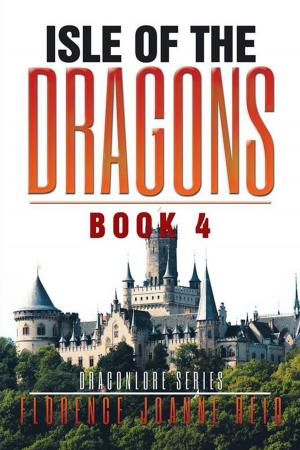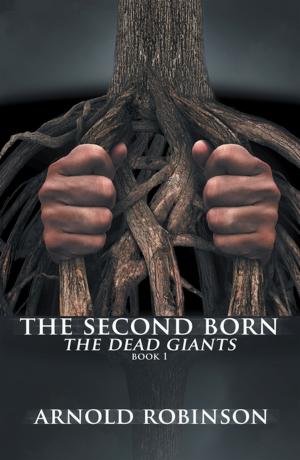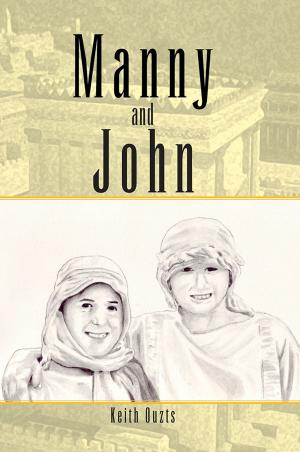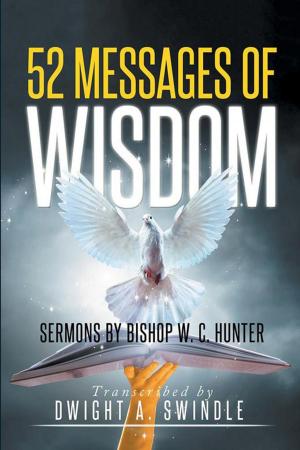| Author: | William K. Schultz | ISBN: | 9781469115825 |
| Publisher: | Xlibris US | Publication: | July 18, 2006 |
| Imprint: | Xlibris US | Language: | English |
| Author: | William K. Schultz |
| ISBN: | 9781469115825 |
| Publisher: | Xlibris US |
| Publication: | July 18, 2006 |
| Imprint: | Xlibris US |
| Language: | English |
The Great Jewish Revolt Against Rome was a first-century tragedy whose effects still resonate today. Timeless themes that still plague the Middle East region and the world -- ethnic conflict, religious fanaticism, social upheaval, and the clash of civilizations -- made their baleful appearance in this bloody conflict fought from 66-73 CE. The Jews struggle against the Rome of Nero Caesar was part of the age-old battle of human kind to establish a society of justice and freedom in the face of the tyranny and exploitation of a great empire. It is also a story of the deeply fractured and corrupted Jewish nations bitter struggle with itself over issues of wealth and poverty, law and governance, collaboration or defiance, while seeking to order its society according to its unique laws and customs. An intense religious atmosphere infused the Jewish drive for freedom, and the deep religious ferment associated with their struggle had a profound influence on the subsequent development of both Judaism and Christianity. The trilogy The Lord Wept brings to life the swirling events of the Jewish nations attempt to free itself from the Roman Empire. Its characters are largely drawn from actual personages of the time, and the action adheres closely to historic events. The Disinherited Nation, the first novel of the trilogy, is set amidst the chaotic events of the year 66 when the revolt erupted. The action centers on a pair of nationalist Jerusalem aristocrats named Ananus and Eleazar who attempt to seize on what at first was an uprising against a corrupt and oppressive governor named Gessius Florus in order to establish an independent but conservative Jewish regime. Their endeavor is overwhelmed, however, by a bloody social upheaval that goes beyond their control in which the revolutionary leaders Simon ben Giora, Menahem ben Judas, and Eleazar ben Jair seek to create a radically new Jewish society. Amidst the turmoil the elderly scribal-scholar Jochanan ben Zacchai, who espouses the peace-loving teachings of his master the great Rabbi Hillel, tries to head off what he views as the Jews quixotic and ultimately suicidal drive for independence. He reluctantly starts to think the unthinkable -- what will happen if the revolt is crushed and the Jewish nation destroyed. The novel is furthermore the story of the Roman client and ally King Herod Agrippa II who, while carrying on an incestuous affair with his sister and co-ruler Berenike, attempts to restrain Roman brutality toward the Jews in sincere belief that the destiny of the Jewish nation lies in subservience to Caesar and to the Herodian family. He almost loses his kingdom and his life in the process. Featured also is the Roman general Cestius Gallus, the powerful governor of Syria, whose reluctant decision to crush the Jews leads to the mauling of his army and his own death. Drawn into the middle of these events are the early Christians, an unimportant sect reeling from the recent execution of its principle leaders and the vicious attack of Emperor Nero. While the Christians of Jerusalem -- who still view themselves as Jews -- agonize over the upheaval in which they are engulfed, a young Greek named Luke arrives in Judaea on a mission of scholarly research. His mission will plunge him into the middle of the violence of the revolt. It will also lead him to become romantically involved with the lovely Rachel, the daughter of his patron. The Disinherited Nation ends with an amazing Jewish victory over Rome and the attainment of a temporary independence for Israel. The subsequent novels of The Lord Wept trilogy, to be published shortly, will carry the story through to the revolts bloody denouement, the destruction of Jerusalem and its temple and the crushing of the last spark of Jewish resistance at the desert fortress of Masada
The Great Jewish Revolt Against Rome was a first-century tragedy whose effects still resonate today. Timeless themes that still plague the Middle East region and the world -- ethnic conflict, religious fanaticism, social upheaval, and the clash of civilizations -- made their baleful appearance in this bloody conflict fought from 66-73 CE. The Jews struggle against the Rome of Nero Caesar was part of the age-old battle of human kind to establish a society of justice and freedom in the face of the tyranny and exploitation of a great empire. It is also a story of the deeply fractured and corrupted Jewish nations bitter struggle with itself over issues of wealth and poverty, law and governance, collaboration or defiance, while seeking to order its society according to its unique laws and customs. An intense religious atmosphere infused the Jewish drive for freedom, and the deep religious ferment associated with their struggle had a profound influence on the subsequent development of both Judaism and Christianity. The trilogy The Lord Wept brings to life the swirling events of the Jewish nations attempt to free itself from the Roman Empire. Its characters are largely drawn from actual personages of the time, and the action adheres closely to historic events. The Disinherited Nation, the first novel of the trilogy, is set amidst the chaotic events of the year 66 when the revolt erupted. The action centers on a pair of nationalist Jerusalem aristocrats named Ananus and Eleazar who attempt to seize on what at first was an uprising against a corrupt and oppressive governor named Gessius Florus in order to establish an independent but conservative Jewish regime. Their endeavor is overwhelmed, however, by a bloody social upheaval that goes beyond their control in which the revolutionary leaders Simon ben Giora, Menahem ben Judas, and Eleazar ben Jair seek to create a radically new Jewish society. Amidst the turmoil the elderly scribal-scholar Jochanan ben Zacchai, who espouses the peace-loving teachings of his master the great Rabbi Hillel, tries to head off what he views as the Jews quixotic and ultimately suicidal drive for independence. He reluctantly starts to think the unthinkable -- what will happen if the revolt is crushed and the Jewish nation destroyed. The novel is furthermore the story of the Roman client and ally King Herod Agrippa II who, while carrying on an incestuous affair with his sister and co-ruler Berenike, attempts to restrain Roman brutality toward the Jews in sincere belief that the destiny of the Jewish nation lies in subservience to Caesar and to the Herodian family. He almost loses his kingdom and his life in the process. Featured also is the Roman general Cestius Gallus, the powerful governor of Syria, whose reluctant decision to crush the Jews leads to the mauling of his army and his own death. Drawn into the middle of these events are the early Christians, an unimportant sect reeling from the recent execution of its principle leaders and the vicious attack of Emperor Nero. While the Christians of Jerusalem -- who still view themselves as Jews -- agonize over the upheaval in which they are engulfed, a young Greek named Luke arrives in Judaea on a mission of scholarly research. His mission will plunge him into the middle of the violence of the revolt. It will also lead him to become romantically involved with the lovely Rachel, the daughter of his patron. The Disinherited Nation ends with an amazing Jewish victory over Rome and the attainment of a temporary independence for Israel. The subsequent novels of The Lord Wept trilogy, to be published shortly, will carry the story through to the revolts bloody denouement, the destruction of Jerusalem and its temple and the crushing of the last spark of Jewish resistance at the desert fortress of Masada















